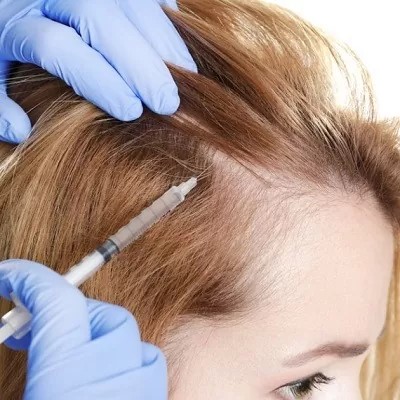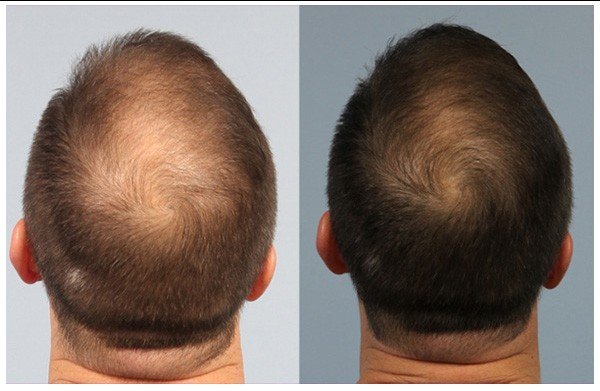 Zapier Automation – Automate Publishing. Free Your Time!
Zapier Automation – Automate Publishing. Free Your Time!
Dubai Hair Transplant Recovery: What to Expect After Surgery
Written by Dynamic Clinic » Updated on: June 17th, 2025

Getting a hair transplant is a significant step towards regaining your confidence and achieving a fuller head of hair. If you’ve chosen Dubai for your hair transplant, you’re in good hands with some of the best surgeons and state-of-the-art facilities. However, understanding what to expect during the recovery process is crucial for ensuring optimal results. Let's walk through the recovery journey after a Hair Transplant in Dubai, so you know exactly what to anticipate and how to care for your new hair.
Immediate Post-Surgery Period
Right After the Procedure
After the surgery, you’ll spend some time in the clinic for observation. The medical staff will ensure that you’re comfortable and provide you with initial aftercare instructions. You might feel some numbness and tenderness in both the donor and recipient areas, which is completely normal.
Leaving the Clinic
Once cleared by your surgeon, you can go home or to your accommodation. It’s advisable to have someone accompany you, as you might feel a bit groggy from the anesthesia.
First Week of Recovery
Day 1-2: Managing Swelling and Discomfort
You’ll likely experience some swelling and mild discomfort during the first couple of days. Your doctor will prescribe pain medication and possibly antibiotics to prevent infection. Swelling typically peaks around day three and then gradually subsides.
Day 3-7: Scab Formation and Healing
Small scabs will form around the transplanted follicles. It’s important not to pick or scratch these scabs, as this can dislodge the grafts. Your surgeon will give you a special saline spray to keep the grafts moist and aid healing.
Caring for Your Scalp
Washing Your Hair
You’ll be instructed on how to wash your hair carefully. Typically, you can start gentle washing after a few days using a mild shampoo. Avoid direct water pressure on the scalp and use a cup to rinse.
Sleeping Position
To minimize swelling, sleep with your head elevated for the first week. Use pillows to prop yourself up at a 45-degree angle.
Two Weeks Post-Surgery
Shedding of Transplanted Hair
Around two weeks after the procedure, you might notice the transplanted hair starting to shed. This is a normal part of the process called "shock loss" and indicates that the follicles are entering a resting phase before new growth starts.
Returning to Normal Activities
By this time, most of the initial discomfort should subside. You can gradually resume normal activities, but avoid strenuous exercises and activities that might cause sweating or impact the scalp.
One Month Post-Surgery
Hair Growth Cycle
At this stage, your scalp should feel much more normal, and any lingering redness or swelling should have diminished. However, don’t expect to see significant new hair growth yet. The follicles are still in the resting phase, and new hair growth will typically start to be noticeable in a few months.
Follow-Up Appointment
Your surgeon will likely schedule a follow-up appointment to assess your progress and ensure that everything is healing correctly. This is a good time to ask any questions or address concerns you might have.
Three to Six Months Post-Surgery
Initial Hair Growth
You’ll begin to see new hair growth around the three-month mark. The hair will initially be fine and may appear thin, but it will gradually thicken over time.
Ongoing Care
Continue to follow your surgeon’s advice regarding scalp care and any prescribed medications. At this point, you can resume most of your regular activities, including more strenuous exercises.
Six to Twelve Months Post-Surgery
Significant Hair Growth
By six months, you should see a noticeable improvement in hair density. The transplanted hair will continue to grow and thicken, blending seamlessly with your natural hair.
Final Results
The full results of your Best Hair Transplant in Dubai Cost will become apparent between nine to twelve months post-surgery. Your new hair will look and feel like your natural hair, allowing you to style it as you wish.
Long-Term Aftercare
Maintaining Your Results
To maintain the health of your transplanted hair and your overall scalp, use recommended hair care products and follow any additional advice from your surgeon. Regular check-ups can help monitor your progress and address any concerns promptly.
Healthy Lifestyle
A healthy lifestyle supports hair growth. Ensure a balanced diet, stay hydrated, and avoid smoking and excessive alcohol consumption. Managing stress is also beneficial for overall hair health.
Conclusion
Recovering from a hair transplant in Dubai involves several stages, from immediate post-surgery care to enjoying the full results months later. Understanding what to expect can help you navigate the process smoothly and achieve the best possible outcome. With proper care and patience, your Best Hair Transplant Clinic in Dubai will lead to a fuller head of hair and renewed confidence.
FAQs
How long does it take for hair to start growing after a transplant?
You’ll typically see initial hair growth around three months post-surgery, with significant growth and thickness developing between six to twelve months.
Can I go back to work the day after my hair transplant?
It's recommended to take at least a few days off work to rest and start the recovery process. Most patients return to normal activities within a week.
Is it normal for the transplanted hair to fall out?
Yes, it’s normal for transplanted hair to shed within the first few weeks. This is part of the hair growth cycle, and new hair will start to grow from the follicles.
When can I start exercising after a hair transplant?
Light activities can be resumed after a week, but it’s best to avoid strenuous exercises for at least a month to prevent affecting the healing process.
How can I ensure the best results from my hair transplant?
Follow your surgeon’s aftercare instructions carefully, maintain a healthy lifestyle, and attend all scheduled follow-up appointments to monitor your progress.
Note: IndiBlogHub features both user-submitted and editorial content. We do not verify third-party contributions. Read our Disclaimer and Privacy Policyfor details.
Copyright © 2019-2025 IndiBlogHub.com. All rights reserved. Hosted on DigitalOcean for fast, reliable performance.













